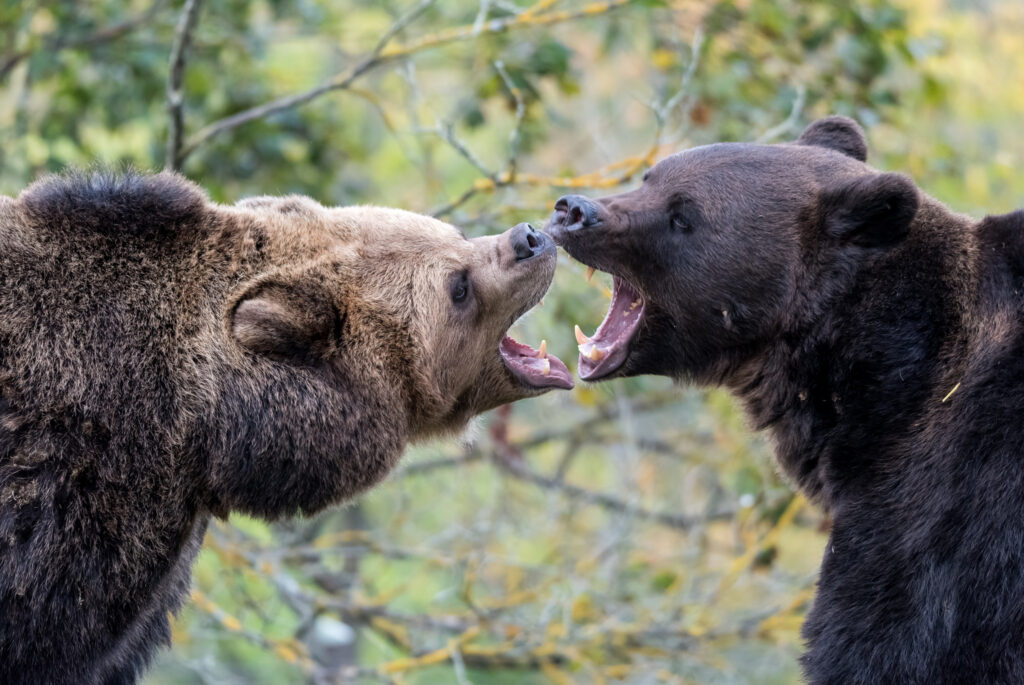Up till now it’s been a story about ivy
pulling down arches. Pipe cleaners shifting to dust
in the attic sun. We’ve stopped worrying so much
about worrying. Lights on a dimmer.
Then suddenly, bears: at the mailbox,
at the door. We hear them first, their strange
digital mooing, their pendulous throats.
They shuttle dark sounds back into our range
past the wood gates we’ve built or let
stand, through storm screens coated in rubber.
Their blunt heft shimmers under swipes of claw, fur unspooling
like a reluctant accordion. And we are glad
to see them, old friends, the torque of their patient combat,
even here, even as a child blows soap bubbles through
a grooved ring, even as bathwater cools around her chest.
The way the bears’ bodies linger before they strike, mouths
open, slack—we remember something of that, from before
all the fences, the stairs and the cars, from a similar injury or kiss.








